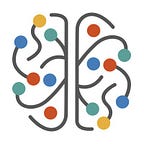Dating with Alexa, Predictive Policing, and ‘Material Intelligence’
This week we look at a mix of interesting pieces — news that Alexa and Google Home may one day turn to relationship advice, and that the British police are seeking to use ‘predictive policing’. We also look at how neuroscience can work with AI to challenge core assumptions we have about ourselves, and coming to appreciate the world can mean
My colleague James Kingston has been hard at work on our upcoming AI Ethics primer, which gives you your ‘need to know’ introduction to the world of ethics in AI. Pre-register your interest in the primer — give him an email on james.kingston@cognitionx.io
Privacy, Surveillance
It seems our home devices can now predict whether a home will survive. Interesting study, with huge potential privacy implications. It also connects to ideas around ‘delegation’, or the handing over of ever more human tasks to smart assistants. Will machines sort out our dating lives as well as our shopping?
Policing, Trust, Bias, Freedom
UK police wants to stop violent crime before it happens
The British police want to predict and preemptively intervene with potential criminals using their new National Data Analytics Solution. The potential for serious ethical issues have been raised by the Alan Turing Institute.
Trust
Does Palestine pay $350m a year to terrorists and their families? Verifying claims like this is central to fighting fake news and maintaining trust in society. This intriguing article on computational news discovery discusses applications such as ‘algorithmic claims spotting’, which monitors news for potentially de-bunkable claims.
Meaning, Freedom
Is Neuroscience a Bigger Treat than Artificial Intelligence?
At the nexus of contemporary advances in neuroscience and AI have come deep threats to current notions of human meaning — that humanity is in any sense ‘free’, and that consciousness plays the central role in human agency and rationality. However, researchers now argue that our belief around theory of mind are wrong — that “thoughts with meaning have no more role in the human brain than in artificial intelligence.” Should this be the case, what does this mean for humanity in an age where non-conscious ‘unthinking’ machines come to have more power than we do?
Ethics and Design
Social structures and technological advances have left us ever more alienated from the physical artefacts that make our world. This essay makes a ‘modest proposal’ — that we cultivate our ‘material intelligence’, and in doing so take greater responsibility for our actions. In our age of rising concerns about technology, it it is essential we develop a greater appreciation of the objects and systems we have createed around us.
CognitionX Research
Our research team can help with a whole range of strategic objectives. Which service would add most value to your team?
